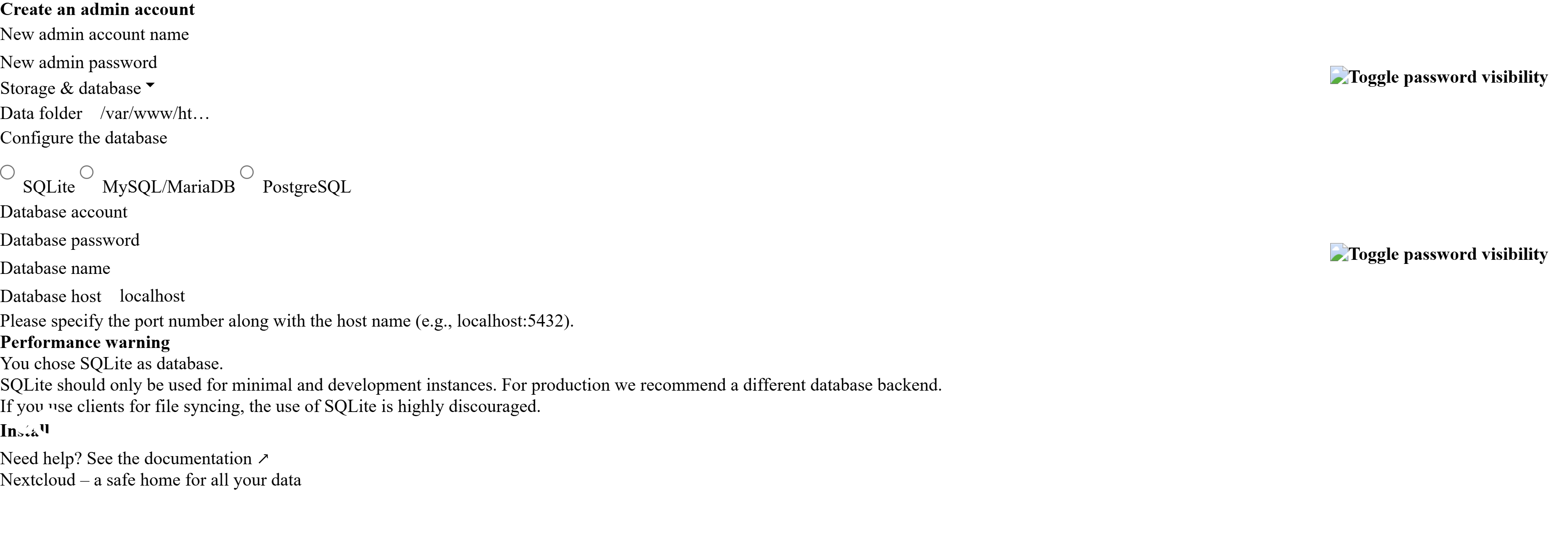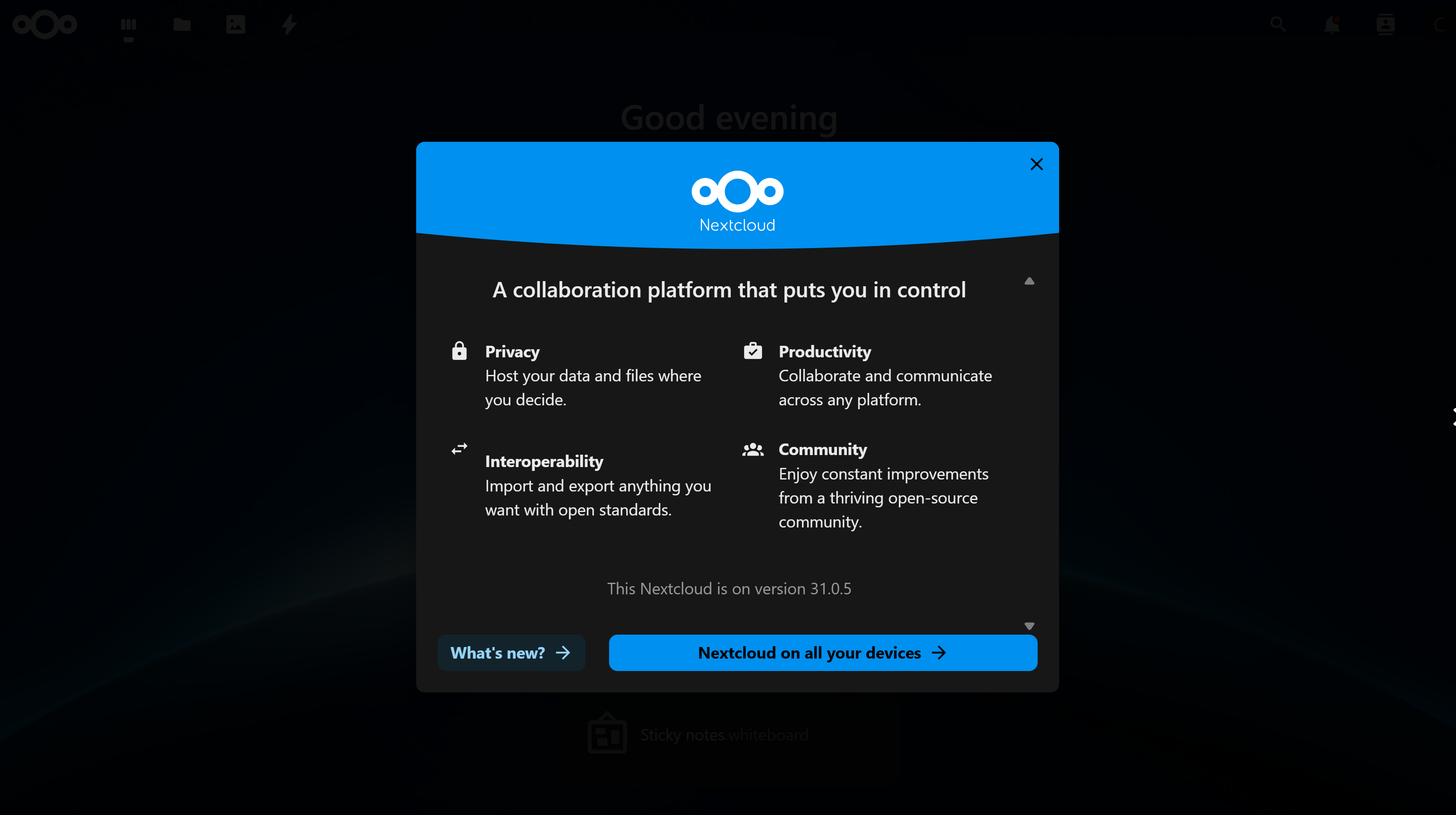Nextcloud Remote Access Deployment
ECE Discovery Project | Summer 2025
Project Overview
This project focuses on deploying a secure self-hosted cloud service using Docker and Nextcloud. The goal was to make the service accessible remotely without relying on paid hosting providers.
Why Not Use Third-Party Cloud Services?
Services like Google Drive or OneDrive store data offsite, scan content, and enforce platform limits. I wanted full ownership over my files and the infrastructure they lived on. Hosting a private Nextcloud instance gave me that control.
Tools Used
Docker: A containerization platform that isolates apps into modular, portable units.
Nextcloud: An open-source alternative to cloud storage services that runs on personal infrastructure.
Cloudflare Tunnel: A tunneling solution that lets you expose local servers to the internet securely, without port forwarding.
Process Summary
- Deployed Nextcloud with Docker Compose, alongside a MariaDB database container.
- Tested initial access locally, successful.
- Attempted port forwarding but ran into Internet Service Provider (ISP) restrictions and port conflicts.
- Integrated Cloudflare Tunnel to provide HTTPS access without opening ports.
- Debugged a missing CSS/script issue that was resolved by restarting the container stack.
Screenshots


Demo Clips
Skills Gained
- Debugging real-world deployment issues in Linux environments
- Understanding Docker's abstraction model and container isolation
- Hands-on DNS and tunneling configuration with Cloudflare
- Secure access design without relying on traditional port forwarding
- ECE concept: Abstraction and modular system layers from ISA
Final Thoughts
I plan to keep using the system personally, expand storage, and enable end-to-end encryption. This container-based stack has become my testbed for future projects in internetworking and cybersecurity.